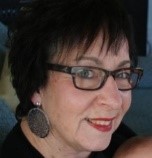 My vocation in life became learning and the sharing of that learning.
My vocation in life became learning and the sharing of that learning.
Year after year I searched for every possible way to switch on that love of learning for each learner that sat in my class. In the beginning of my professional journey and fresh out of under graduate studies it was youth, enthusiasm and dogged determination that spurred me on. As the years moved on, the curriculum filled, the administrative duties increased, the accountability sky rocketed and the number of duties outside the face to face teaching time soared. I barely had breathing space, yet alone time to understand the rationale behind the curriculum of the day. I taught through many iterations of my State’s curriculum. Each time, the opportunity to thresh out the direction and implication became more fleeting. The treadmill of pace became faster.
I recall the Melbourne Declaration on Education Goals for Young Australians, a manifesto written by politicians in 2008, that promised every child a world-class education was released. The year was 2008. I was on sick leave when the professional development about the Melbourne Declaration took place at my school. In fact, I barely knew about that document at all. The years moved on and my teaching and learning were without its wisdom. Time was too short to educate myself to learn about the world, to smell the roses.
After my time in the classroom I became an education officer for a project that opened my eyes and enabled me to learn with other teachers. I looked at curricula from here and across the globe. I learned to use social media and met other educators from around the world, discussed pedagogies, educational development, and future implications. Books and research articles caught my attention and I put myself out there to continue my passion of sharing learning but this time on a global stage. I travelled-to places I never dreamt I would. I’ve seen other cultures, other perspectives to life that in turn have broadened my understanding of what it is to live. I set up a website, simply because I had the time to learn how to do so. My network of educators has expanded to the point that there is always an opportunity to discuss or work at understanding more about learning. And I know all about the Melbourne Declaration.
Now I am retired from the classroom but still highly involved in education. I have the time to reflect and review curricula, educational research and directives. I can now connect the dots. I learn every day-about education, the perspectives available and the fascinating stage that is the setting for every engagement we make-our world and its people.
And here’s the point. Teachers are time poor. They barely have the chance to get to the bathroom or document on each student. They are saturated in educational material, too much to absorb and implement without the time to do so. That’s if they’re not sick.
Their training is also needing review. “Teachers have not been trained to the new requirements. There is a lack of political courage due to a lack of understanding by the general population of the risks of not moving forward. In fact, change is the safest approach.” Charles Fadel, 2017. The attrition rates for new teachers (estimates vary from 25% to 40% within five years) should concern us. (The State of Australia: education, The Conversation, 2014). That’s not a great return on four years of study.
Here’s my two bob’s worth. Take a long hard look at how we are educating our students. Our system of teaching land earning has not perceptibly moved on since the models constructed in the industrial revolution. “Today the world of work is changing fast. Jobs are disappearing as automation replaces the need for people and new jobs are emerging that demand transferable skills and capabilities. Schools do not teach for the societal needs at large and employability. This is coupled with narrow assessments focused on traditional knowledge [The 3 Rs] and placing a value on scores – not deep learning.” Charles Fadel, 2107.
“Research consistently demonstrates that teacher quality is the greatest in-school influence on student engagement and outcomes.” (‘Great Teaching, Inspired Learning: What does the evidence tell us about effective training?’ NSW Department of Education and Communities, Centre for Education Statistics and Evaluation, Office of Education, 2013). Teaching is an isolated profession. I’d factor sabbaticals into a teacher’s years of duty, an opportunity when they can go out into a community, wherever that may be, and just learn for the sake of learning. The experiences will be enriching, will reinvigorate them as educators and reignite their passion to educate others.
Investing in educators would have to be a comprehensive insurance for the improvement in quality of education, for the improvement in attitude of students and for the direction our leadership says it wants- to promote equity and excellence in Australian schooling and to have successful learners who are confident and creative individuals – active and informed citizens.
